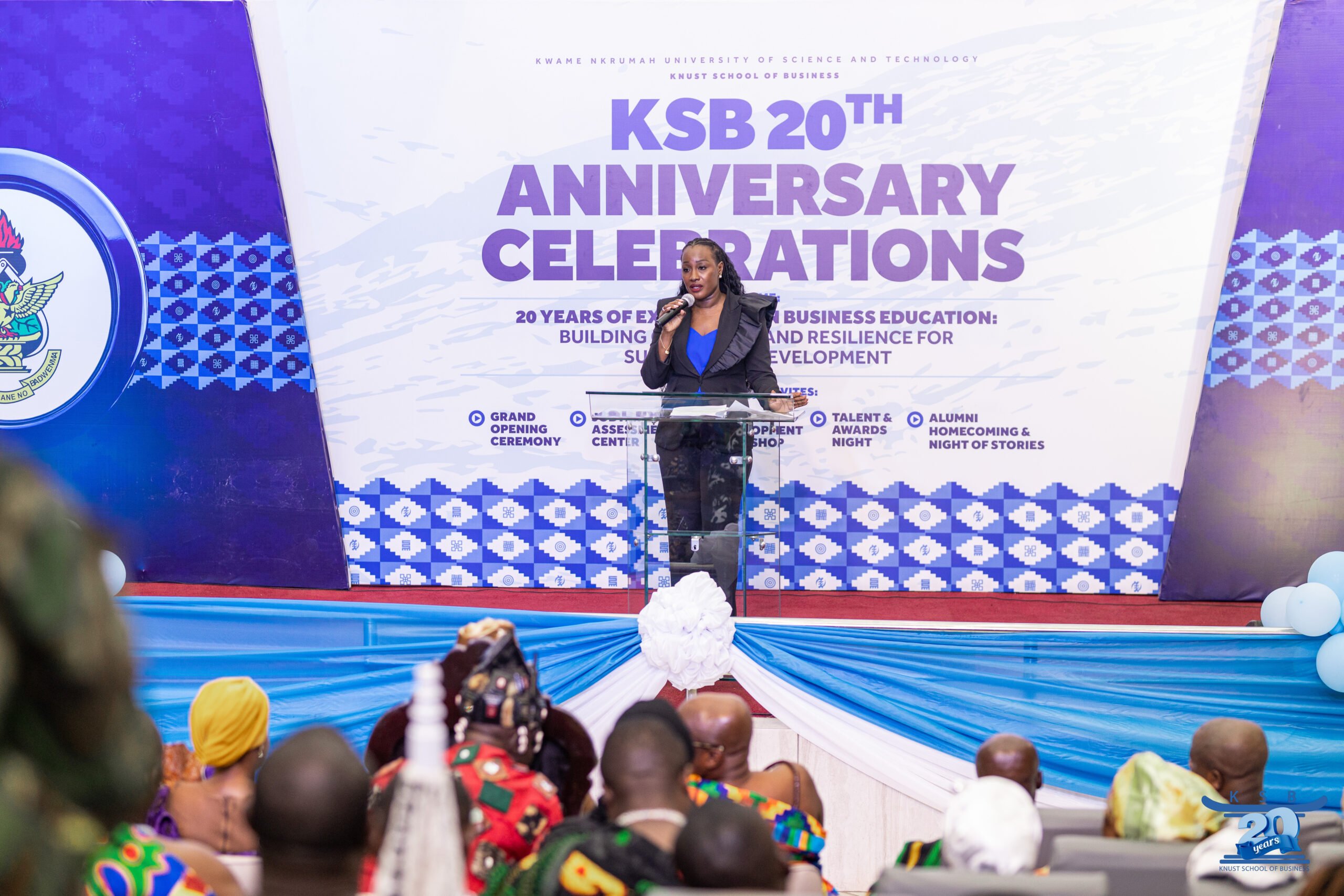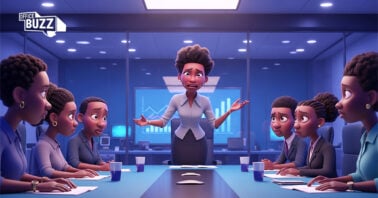Nananom, Ga Mantse, the Vice Chancellor, Pro-vost, Dean of the School of Business, esteemed faculty, fellow speakers, alumni, distinguished guests, and students of the KNUST School of Business. Good morning. All protocols observed.
It’s a true and singular honour to join you today as we mark 20 years of excellence at one of Africa’s premier business institutions. Today’s theme, “Bridging the Skills Gap: Business Education and the Changing World of Work”, could not be more urgent, relevant, or personal to me as a stakeholder in Ghana’s ever-evolving employment landscape.
Let’s begin with a sobering reality.
Across Ghana and indeed the wider African continent, we are witnessing a paradox: a swelling population of educated young people on one hand and on the other, employers consistently voicing a lack of “job-ready” talent. This disconnect between education and employability is what we call the skills gap. It’s not a theoretical problem. It’s real, and it’s costing us opportunities, productivity, and growth.
So the question becomes: in this fast-changing world of work, how can education institutions adapt quickly, intentionally, and impactfully to produce not just graduates, but leaders, creators, and solution builders?
Let me offer three perspectives based on what we see in the field every day as a Human Resource and Recruitment organization serving over 20,000 employers across multiple industries.
Table of Contents
1. The World of Work Has Changed Permanently
We are not going back to the job market of five years ago. NO…
Digital transformation, remote work, AI disruption, and global economic shocks have redrawn the map of employment. Roles are evolving faster than curricula. Employers are no longer just asking: “What did you study?” They’re asking: “What can you do?”
We see increasing demand for hybrid skills. Think of a finance graduate who can build dashboards in Power BI, or a marketing professional who understands data analytics and customer journey mapping. Even traditional sectors like banking and manufacturing want talent that combines critical thinking with digital savvy..
So to the students here today: your degree is your launchpad, not your landing place. To thrive in this new world, you’ll need to embrace lifelong learning, stay curious, and be adaptable.
2. Work Readiness Is Now a Competitive Advantage
In today’s job market, knowledge is no longer enough.
Employers want people who can work in cross-functional teams, communicate with clarity, take initiative, and adapt to ambiguity. They’re not just hiring qualifications, they’re hiring mindset, attitude, agility and passion.
Unfortunately, too many of our brilliant graduates are technically trained but not workplace-ready. This is where business schools must evolve from knowledge hubs to capability builders.
We need to embed work readiness into the DNA of business education through internships, real-world case studies, mentorships, business simulations, industry-led capstones, and leadership development programmes. Employers are looking for graduates who can “hit the ground running.” We must answer that call.
3. Business Schools Must Build the Bridge, Not Just Teach About It
The KNUST School of Business already has a proud legacy, but to future-proof our graduates, we must go further.
We must:
- Co-create curriculum with industry players, so students graduate with market-relevant skills.
- Encourage entrepreneurial thinking, not just in running startups, but in how graduates approach problem-solving and innovation inside organisations.
- Invest in digital literacy as a core subject, not an elective. From Excel to AI, our students must be fluent in the tools of tomorrow.
- Integrate soft skills and emotional intelligence into the curriculum. Not as a footnote, but as a differentiator.
And most importantly, we must make career services central, not peripheral to the student experience. Every student should leave here not only with a transcript but with a portfolio, a career plan, and a network of mentors.
To the Students here
You are entering into a competitive but opportunity-rich world. You will need more than good grades. You will need grit, clarity, and agility.
My advice?
Build your personal brand early. Seek feedback constantly. Say yes to challenges that scare you. And remember: in this world, no one hires degrees. People hire capabilities.
As the American business strategist Peter Drucker once said:
“The best way to predict the future is to create it.” and emphasized by Leonard I Sweet “The future is not something we enter. The future is something we create
So don’t wait for an opportunity. Train for it. Shape yourself for it. And when it arrives, be so prepared that no one can overlook you.
In Conclusion
This 20th anniversary is not just a celebration of our past, it is a moment of reckoning for our future. The world of work is shifting beneath our feet, but we have what it takes to respond: brilliant minds, strong institutions, and a deep well of ambition.
Let us use the next 20 years to build a bridge, not between students and jobs, but between potential and prosperity. Between knowledge and impact. Between education and transformation.
Thank you, and congratulations to the KNUST School of Business on 20 years of excellence and impact.





